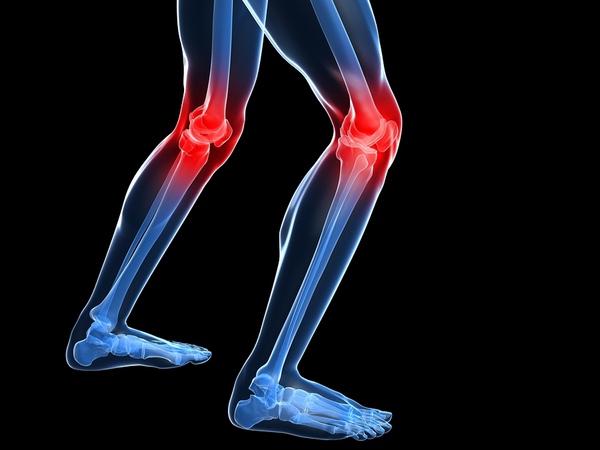It makes sense that carrying extra weight increases the stress on your joints, so it is no surprise that many people dealing with obesity also have joint trouble. While 1 in 5 Americans has been diagnosed with arthritis, that number jumps to more than 1 in 3 among people with obesity, according to the CDC. And 2 out of 3 Americans are now either overweight or obese.
Our joints allow us to do everything from walk, to write, to turn our heads – so when joints become damaged or diseased, daily life can become challenging and painful. The joints of the body that hold us up when we stand and carry the weight of our body are called “weight bearing joints.” The primary weight bearing joints are the ankles, knees and hips. Joints of the feet, pelvis and low back are also weight-bearing.
To really understand how much our weight can affect our joint health, think about this: Experts say that every pound of excess weight exerts about 4 pounds of extra pressure on the knees. So a person who is 10 pounds overweight has 40 pounds of extra pressure on their knees. A person who is 100 pounds overweight has 400 pounds of extra pressure on their knees! That is a lot of pressure for a joint to take, and explains the pain – which in turn makes it harder to exercise.
Unsurprisingly, many people who struggle with obesity eventually need a replacement of one or more weight bearing joints—especially hip or knee joints. Recovery can be difficult, especially for a person with severe obesity, but there may be something to help. A new study from Hospital for Special Surgery (HSS) found that for these patients, bariatric surgery performed before a total hip or knee replacement surgery can reduce in-hospital and 90-day postoperative complications and improve health. Specifically, their results showed that patients who had bariatric surgery were 75% less likely to have in-hospital complications from a total hip replacement and 31% less likely to have in-hospital complications for a total knee replacement. Although there wasn’t a reduction in risk for revision surgery, the risk for 90-day postoperative complications was lower in patients who received bariatric surgery: 14% lower in the hip replacement group and 61% lower in the knee replacement group.
Along with these significant reductions in risk, patients often experience other health improvements associated with bariatric surgery, including improvements in type 2 diabetes, heart disease, hypertension, or sleep apnea. You can learn more about the benefits of bariatric surgery and whether it may be a good option for you by scheduling your consultation with Dr. Mona Misra today.

